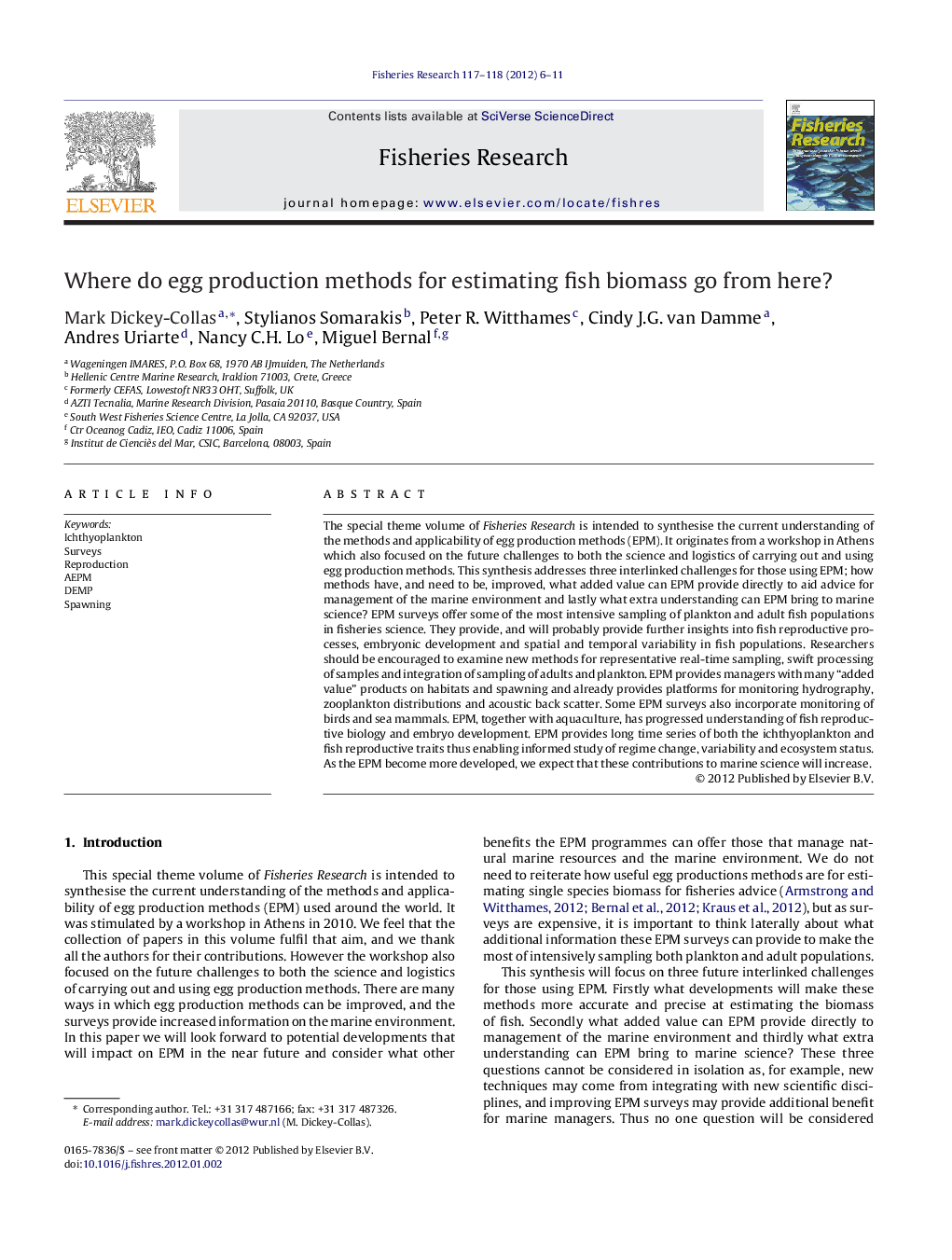| Article ID | Journal | Published Year | Pages | File Type |
|---|---|---|---|---|
| 4543477 | Fisheries Research | 2012 | 6 Pages |
The special theme volume of Fisheries Research is intended to synthesise the current understanding of the methods and applicability of egg production methods (EPM). It originates from a workshop in Athens which also focused on the future challenges to both the science and logistics of carrying out and using egg production methods. This synthesis addresses three interlinked challenges for those using EPM; how methods have, and need to be, improved, what added value can EPM provide directly to aid advice for management of the marine environment and lastly what extra understanding can EPM bring to marine science? EPM surveys offer some of the most intensive sampling of plankton and adult fish populations in fisheries science. They provide, and will probably provide further insights into fish reproductive processes, embryonic development and spatial and temporal variability in fish populations. Researchers should be encouraged to examine new methods for representative real-time sampling, swift processing of samples and integration of sampling of adults and plankton. EPM provides managers with many “added value” products on habitats and spawning and already provides platforms for monitoring hydrography, zooplankton distributions and acoustic back scatter. Some EPM surveys also incorporate monitoring of birds and sea mammals. EPM, together with aquaculture, has progressed understanding of fish reproductive biology and embryo development. EPM provides long time series of both the ichthyoplankton and fish reproductive traits thus enabling informed study of regime change, variability and ecosystem status. As the EPM become more developed, we expect that these contributions to marine science will increase.
